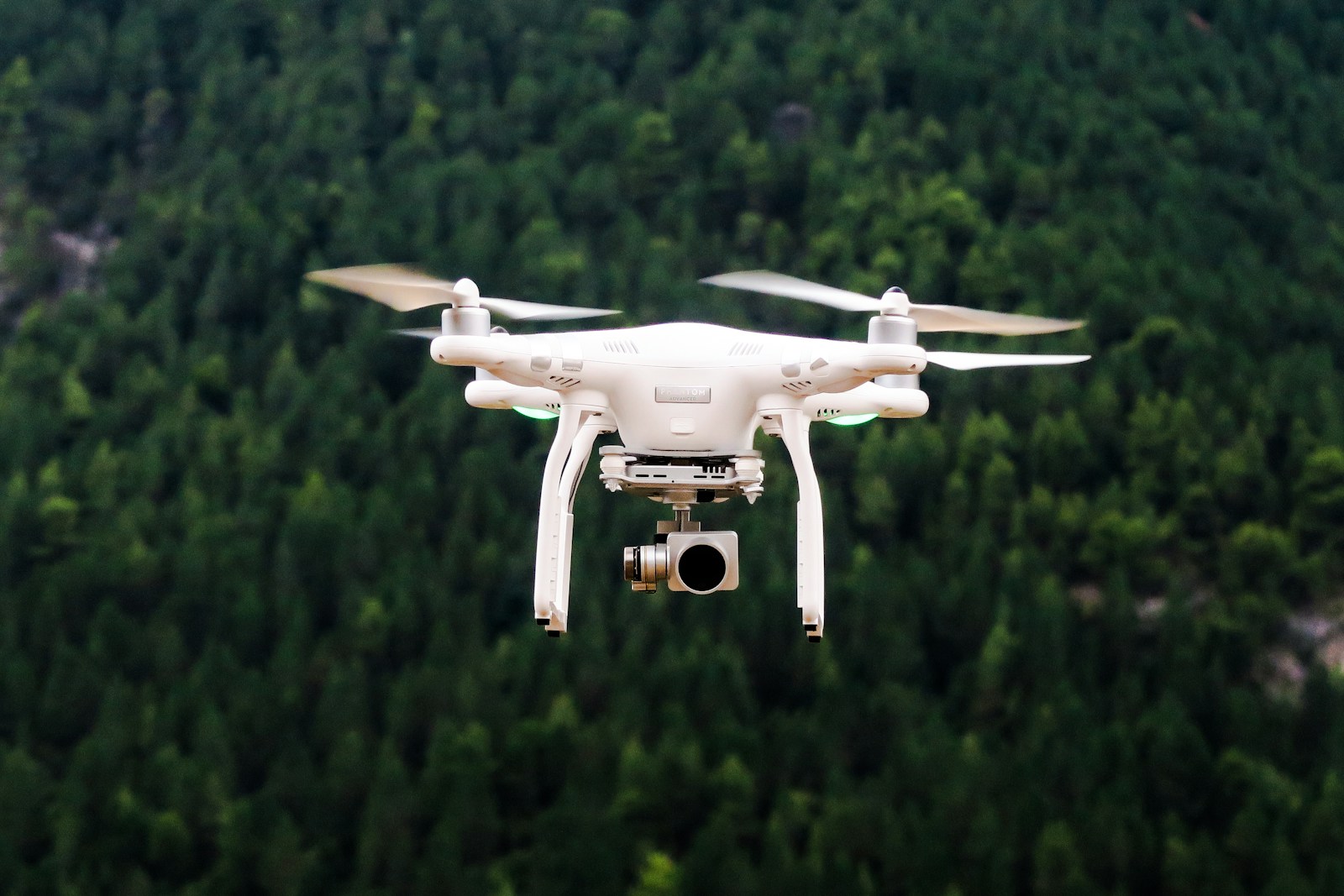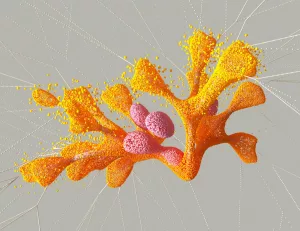The world of farming is no stranger to technological advancements, and drones have become an invaluable tool for optimizing crop yields. By embracing drone technology, farmers can gain a deeper understanding of their fields, allowing them to make precise adjustments that can lead to a more bountiful harvest. Let’s delve deeper into the various ways drones are revolutionizing agriculture, and explore practical tips and real-world examples to help farmers harness their full potential.
Aerial Imaging and Mapping
Drones equipped with high-resolution cameras capture detailed aerial images, which are then processed into comprehensive maps. These maps provide a bird’s-eye view of the farmland, highlighting areas that require attention. For instance, a farmer in Iowa used drone mapping to identify a patch of corn suffering from a fungal infection. Early detection allowed him to treat the affected area promptly, preventing the spread and saving the rest of the crop.
Tips for Effective Aerial Imaging:
- Choose the Right Time: Conduct drone flights during early morning or late afternoon when lighting conditions are optimal for capturing clear images.
- Regular Surveys: Schedule periodic drone flights to monitor changes in crop health over time. This consistency helps in identifying trends and making timely interventions.
- Weather Considerations: Avoid flying drones during adverse weather conditions, such as high winds or rain, to ensure safety and accuracy in data collection.
Soil and Crop Health Analysis
The detailed images collected by drones can be analyzed to assess soil and crop health. This data helps farmers pinpoint issues such as nutrient deficiencies or pest infestations. For example, a vineyard owner in California utilized drone imagery to discover that certain grapevines were not receiving enough water. By adjusting the irrigation system, he was able to improve the vineyard’s overall yield.
Practical Steps for Soil and Crop Analysis:
- Utilize Multispectral Cameras: These cameras capture images in multiple wavelengths, revealing information about plant health that isn’t visible to the naked eye.
- Collaborate with Agronomists: Work with soil and plant experts to interpret drone data effectively and develop targeted interventions.
- Implement Sensor Fusion: Combine data from drones with ground-based sensors to enhance the accuracy of soil and crop health assessments.
Precision Agriculture
Precision agriculture allows farmers to apply resources such as fertilizers and water precisely where needed. Drones facilitate this by providing the necessary data to make informed decisions. In India, a rice farmer used drones to apply fertilizers only to sections of the field that showed signs of nutrient depletion. This targeted approach reduced fertilizer usage by 30%, cut costs, and increased yield.
Implementing Precision Agriculture:
- Create Prescription Maps: Use drone data to develop maps that guide the precise application of inputs like fertilizers and pesticides.
- Invest in Variable Rate Technology (VRT): Equip machinery with VRT to adjust the application rate of resources according to drone-generated maps.
- Monitor Resource Usage: Continuously track the usage of water, fertilizers, and pesticides to optimize input and minimize waste.
Real-Time Monitoring
Drones offer the significant advantage of real-time monitoring, enabling farmers to make swift decisions. In a case study from Brazil, soybean farmers used drones to detect a sudden pest outbreak. With real-time data, they were able to initiate pest control measures immediately, safeguarding their crops.
Tips for Effective Real-Time Monitoring:
- Set Up Automated Alerts: Use software that sends alerts when drones detect anomalies, ensuring quick response times.
- Train a Dedicated Team: Have a team ready to analyze drone data and implement changes swiftly to maximize the benefits of real-time monitoring.
- Develop Response Protocols: Establish clear procedures for responding to different types of alerts to ensure efficient and effective action.
Data Analysis and Decision-Making
All the data gathered by drones must be analyzed to extract actionable insights. Advanced analytics tools can identify trends and correlations within the data, guiding farmers in making informed decisions. A wheat farmer in Kansas used drone data to analyze the impact of different planting densities, resulting in an optimized planting strategy that boosted yields by 15%.
Enhancing Data-Driven Decision-Making:
- Leverage AI and Machine Learning: Implement AI tools that can process large volumes of drone data, providing deeper insights and predictive analytics.
- Continuous Learning: Stay updated with the latest advancements in data analytics tools to ensure you’re using the most effective solutions.
- Engage with Data Scientists: Collaborate with data scientists to develop custom analytics models tailored to specific farm needs.
Integration with Other Technologies
Drones can be integrated with other farm technologies such as GPS systems and smart agricultural machinery. This integration fosters seamless data sharing and enhances overall farm operations. A dairy farm in New Zealand integrated drones with their GPS-guided tractors, improving the efficiency of their feed distribution process.
Steps for Successful Integration:
- Use Compatible Systems: Ensure that all technologies used on the farm are compatible with each other to facilitate smooth integration.
- Centralize Data Management: Implement a centralized system for managing data from drones, GPS, and other sources to streamline operations.
- Invest in IoT Infrastructure: Develop an Internet of Things (IoT) infrastructure to enable real-time data exchange and monitoring across all farm equipment.
Enhancing Sustainability with Drones
Drones not only boost yields but also contribute to sustainable farming practices. By applying resources only where needed, drones help reduce waste and minimize environmental impact. An organic farm in France used drones to monitor and maintain their fields without the excessive use of chemicals, preserving soil health and biodiversity.
Promoting Sustainable Practices:
- Monitor Biodiversity: Utilize drones to keep track of wildlife and plant diversity on the farm, ensuring that farming practices are eco-friendly.
- Reduce Carbon Footprint: By optimizing resource usage, drones help lower the farm’s overall carbon footprint, contributing to global sustainability efforts.
- Implement Eco-Friendly Solutions: Use drones to identify areas for reforestation or other conservation efforts that enhance the ecological balance.
Future Prospects and Innovations
The future of drone technology in agriculture looks promising, with ongoing research and development paving the way for even more innovative applications. Autonomous drones that can operate without human intervention are on the horizon, promising to further revolutionize farm management.
Staying Ahead with Future Innovations:
- Participate in Pilot Programs: Engage with tech companies and research institutions to test cutting-edge drone technologies on your farm.
- Attend Industry Conferences: Stay informed about the latest trends and innovations by attending agricultural technology conferences and workshops.
- Explore Blockchain Integration: Investigate the use of blockchain technology to enhance the traceability and transparency of drone-collected data.
Regulatory Considerations and Best Practices
As drone usage in agriculture increases, farmers need to be aware of regulatory requirements and best practices to ensure compliance and safety.
Navigating Regulatory Frameworks:
- Understand Local Regulations: Familiarize yourself with the drone regulations specific to your region, including flight restrictions and licensing requirements.
- Participate in Training Programs: Enroll in certified training programs to ensure that all drone operators on the farm are knowledgeable and compliant with safety standards.
- Maintain Equipment Properly: Regularly service and maintain drones to ensure they are in safe working condition, reducing the risk of accidents.
Overcoming Challenges in Drone Implementation
While drones offer numerous benefits, farmers may face challenges during implementation. Understanding these challenges and how to overcome them is crucial for successful adoption.
Common Challenges and Solutions:
- High Initial Costs: Although the upfront investment in drone technology can be significant, consider leasing options or government grants that can help offset costs.
- Data Management Complexity: The sheer volume of data collected can be overwhelming. Use cloud-based solutions to manage and analyze data efficiently.
- Skill Gaps: Address the lack of technical skills by providing comprehensive training for farm staff on drone operation and data interpretation.
Building a Community of Practice
Farmers can benefit from sharing experiences and insights about drone technology through a community of practice.
Strategies for Building a Community:
- Join Agricultural Forums: Participate in online forums and local agricultural groups to exchange knowledge and experiences with other farmers using drones.
- Host Field Days: Organize events where farmers can demonstrate drone technology and share success stories, fostering collaboration and learning.
- Collaborate with Universities: Partner with academic institutions to access research, training, and resources that can enhance the effective use of drones.
By embracing drone technology and following these expanded insights, farmers can significantly enhance crop yields, reduce costs, and promote sustainable farming practices. The integration of drones into agricultural operations represents a leap forward in precision farming, offering farmers the tools they need to thrive in an ever-evolving landscape.




